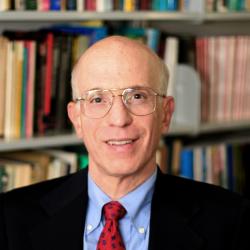The Brookings Institution is committed to quality, independence, and impact.
We are supported by a diverse array of funders. In line with our values and policies, each Brookings publication represents the sole views of its author(s).

Research
BPEA | 2004 No. 1

2004, No. 1
A long tradition in economic theory models economic policy decisions
as solutions to optimization problems solved by rational and wellinformed
agents:1 a single policymaker minimizes a loss function subject
to some constraints. Another body of literature models policy decisions as
if they were made by well-informed voters in elections of some sort.2
As everyone knows, each of these approaches is allegorical in some
respects, two of which are germane to this paper. First, apart from votes
on school budgets and on some bond issues, economic (and other) policy
decisions are rarely made by direct democracy. We instead utilize representative
democracy, in which elected politicians decide on our behalf.
Second, in many cases the agents making the decisions may be neither as
well informed nor as rational as homo economicus. Robert Blendon and
his coauthors, for example, find large gaps between measured economic
performance and the public’s perception thereof.